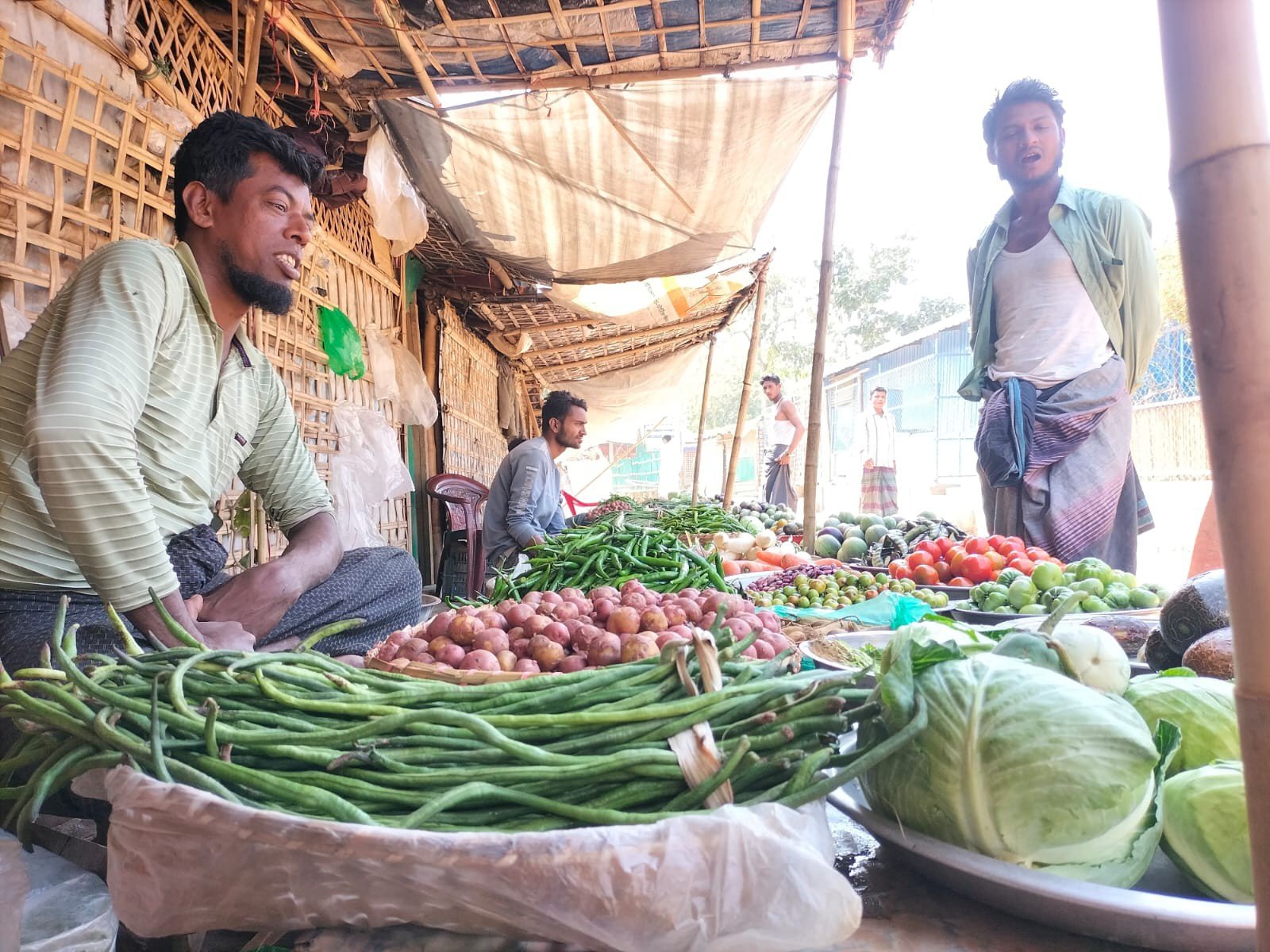Cox’s Bazar, Bangladesh – In the crowded Rohingya refugee camps of Cox’s Bazar, thousands of refugees face daily struggles to meet their basic needs. With limited job opportunities and heavy restrictions on movement and employment, many Rohingya have turned to small roadside businesses, selling vegetables, snacks, fish, tea, and other goods to support their families. However, running these informal businesses comes with its own set of challenges, from crackdowns by authorities to rising costs and limited access to supplies.
For many Rohingya, these small businesses are not just a means of earning money but a lifeline for survival. Abdur Rahman, 35, a refugee from Camp 12, sells fresh vegetables and dried fish on a small mat by the roadside. “I started this business because my family needs food, and there is no other way to earn money,” he said. “We are not allowed to work outside the camps, and there is no proper aid for everyone. Selling a few goods helps me feed my children.”
Similarly, Fatima Begum, a widowed mother of three, runs a small tea stall near her shelter. “Every day, I wake up early to prepare tea and snacks for the people in the camp,” she said. “I don’t earn much, but at least it helps me buy some rice and oil for my children.”
Despite their efforts, many Rohingya business owners face harassment from camp authorities and local law enforcement. Since refugees are officially not allowed to engage in business activities, many traders live in fear of their stalls being destroyed or their goods confiscated.
“There are days when we see the authorities coming, and we have to run away with whatever we can carry,” Rahman said. “If they catch us, they destroy our goods and take everything. It is heartbreaking because this is all we have.”
Many refugees also report being forced to pay bribes to continue their business. “Sometimes, we have to pay money to certain people so they don’t disturb us,” said a young man selling fruits in Camp 9. “If we don’t pay, we lose our only source of income.”
Another major challenge is the rising cost of goods and the difficulty in accessing supplies. Because the camps are heavily restricted, many traders rely on middlemen to bring in goods, which increases prices.
“We buy our goods from Bangladeshi traders at high prices, so we have to sell at higher rates too,” explained Fatima. “But many people in the camps are poor and can’t afford to buy much, so business is always difficult.”
The recent reduction in food aid has made the situation even worse. With the World Food Programme (WFP) cutting monthly food rations from $12 to $10 per person last year, many families struggled to buy essentials. However, with recent adjustments, the food ration has increased to $12 per person, which has slightly eased the pressure on families. Even so, refugees say it is still not enough to cover their daily needs, forcing many to seek alternative ways to earn money.
Despite the difficulties, many Rohingya remain hopeful that one day they will have better opportunities to work and support their families. “We are not asking for much,” said Rahman. “We just want to work and feed our families with dignity. If we are given the chance, we can support ourselves and not rely on aid forever.”
For now, Rohingya refugees in the camps continue to struggle, finding ways to survive under harsh conditions. Their small roadside businesses are a symbol of their resilience, but without proper rights and opportunities, their future remains uncertain.






